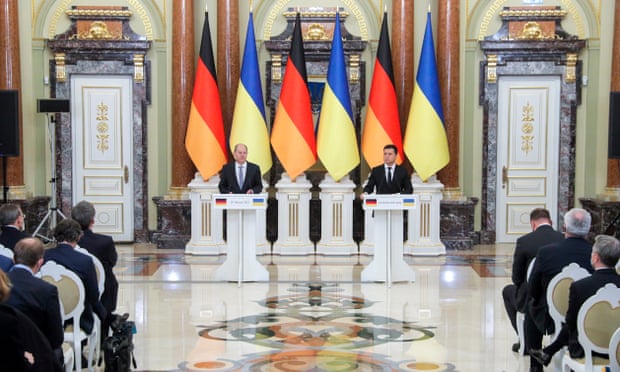Ukraine and South Korea: Parallels or Not?
Let us examine what implications the Ukrainian crisis might have for South Korea. We must first acknowledge that simply calling these two distant countries parallels of each other would not be accurate. There is a large difference in their national power, including their economic power. Ukraine is threatened by Russian aggression across its border whereas South Korea faces threats from North Korea’s nuclear program. Occasionally, South Korea must also engage with China as U.S.-China tensions in East Asia intensify. However, South Korea and China are officially strategic partners. Not being part of NATO, Ukraine cannot expect to benefit from the collective security provided by the U.S. and Western Europe despite being backed by them. In contrast, South Korea is in a military alliance with the U.S.
However, there are also things worth noting for South Korea, especially considering its geopolitical vulnerability. Perhaps the most important point is that global power politics have come back into play. Large-scale conflicts and internal flaws that were hidden behind American unipolarity and the War on Terror over the last generation have begun to reemerge. The rivalry between the U.S. and China over hegemony is one such example.
Both countries also have a neighboring power, which has forcibly and unpleasantly evoked historical connections. In a July 2021 article titled “On the Historical Unity of Russians and Ukrainians,” Russian President Vladimir Putin advocated the idea that Russians and Ukrainians are “one people.” Some interpreted the article as a strategic move to annex Ukraine into Russia, using 1,000-year-old historical events as the justification. Putin’s argument reminds me of former President Donald Trump’s statement that “Korea actually used to be a part of China,” after meeting Chinese President Xi Jinping in 2017. It is unclear whether Trump’s statement was a verbatim account of what Xi said; however, it is generally believed that Trump had heard something similar from the Chinese president.
Looking at how things are unfolding in Ukraine, I cannot help but question whether South Korea’s allies will have Korea's best interests in mind. President Joe Biden and others in the U.S are raising awareness of the crisis as if a Russian invasion were imminent. But the Ukrainian government is calling for restraint, saying that the U.S. is raising unnecessary alarm.
Before his visit to Ukraine on Feb. 1, British Prime Minister Boris Johnson stated provocatively that Russia would cause “destruction and bloodshed” by invading Ukraine, and that “many Russian mothers' sons will not be coming home.” Ukraine’s self-proclaimed “allies” are escalating the conflict against the Ukrainian government’s will, as if Ukraine were a mere pawn on their strategic chessboard. This implies that the U.S. prioritizes curbing Russia’s growth over protecting less powerful allies and would be inclined to ignore Ukraine’s best interests if it achieves that purpose.
The U.S. treatment of South Korea as a pawn in response to China’s rise or North Korea’s nuclear program — using the alliance as a pretense — would be more problematic than if the U.S. simply neglected its obligation as an ally. As South Korean President Moon Jae-in stated in his 2017 Liberation Day address, "Without the consent of the Republic of Korea, no country can determine to take military action" on the Korean Peninsula. It was a time when rumors of war circulated after Trump remarked that North Korea would face “fire and fury.” Moon’s statement was a declaration that South Korea refuses to be a pawn.
Within the larger context of the power shift in Europe and Asia, the Ukrainian crisis is an issue that demands our utmost attention.

